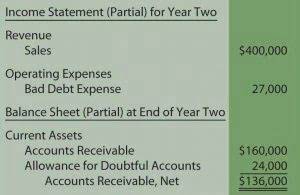Its actions, such as providing liquidity support to banks or adjusting regulatory requirements, can have a profound impact on the financial ecosystem. The European Central Bank (ECB) is the central banking system for the euro, the single European currency, which replaced the national currencies of 19 of the 28 member states of the European Union. A legal personality strengthens the ECB’s decision-making independence in achieving its goals and objectives, above all that of maintaining price stability. The European Parliament must approve the ECB’s nominations for Chair and Vice-Chair.
The ECB’s decisions have a direct impact on the euro area economy, which means they can touch the lives of about 350 million people who live there. Each individual country of course needs to make sure that its national policies support growth. For example, we all agree that Europe needs to build up its strategic industries to avoid excessive dependencies – as Mario Draghi and Enrico Letta emphasised in their recent reports. But we will not succeed if we have 27 different policies for these industries. The ECB can also help make the euro more attractive for euro-denominated trade. We are working on a potential digital euro and pursuing initiatives to enhance cross-border payments in euro, which could potentially facilitate international cross-border transactions in the future.
- By February 2015, Greece’s banks could only receive ECB funds through emergency liquidity assistance (ELA), at the ECB’s discretion and higher interest rates.
- The long term refinancing operations (LTRO) are regular open market operations providing financing to credit institutions for periods up to four years.
- This includes the Supervisory Council, the fourth decision-making body of the ECB, which consists of a President, a Vice-President (member of the Executive Board of the ECB), four representatives of the ECB and representatives of national supervisory authorities.
- As a transitional body, the General Council is tasked with fixing the exchange rates of currencies for countries taking up the Euro.
- The Morningstar Medalist Ratings are not statements of fact, nor are they credit or risk ratings.
In particular, every six weeks, it takes the monetary policy decisions which are then communicated and explained in depth during a press conference held by the President and Vice-President of the Council. To guide interest rates and control the liquidity in the financial system, the ECB and national central banks make use of open market operations. “Open Market Operations” are conducted with various instruments by the ECB, which decides on instruments and methods of intervention, from standard auctions to bilateral procedures, from debt certificate issues to foreign exchange swaps and more. The European Central Bank is the central bank of the members of the European Union, which has the single aim of maintaining the price stability of the Euro, which is adopted by 20 out of 27 member states. It aims to control inflation by monitoring the monetary policy and controlling the money supply in the market through interest rates. The team members are amongst representatives of the member states as decided and agreed upon mutually.
Market operations
But this leading position did not stop the United States taking measures to unilaterally change the international monetary order. During economic crises and financial turbulence, the ECB can directly intervene to provide liquidity to the markets. For example, it may support the economy through bond purchase programs and low-interest rate policies. Such interventions not only affect the Eurozone economy, but also have implications for the global financial system. The ESCB comprises the ECB and the national central banks (NCBs) of all EU Member States whether they have adopted the euro or not.
Difference with US Federal Reserve
ECB decisions can have indirect effects on the FTSE 100 Best high yield dividend stocks through the trade relationships between Eurozone countries and UK-based companies. For instance, ECB’s expansionary policies that weaken the Euro can provide a pricing advantage for UK exporters to the Eurozone. On the other hand, tightening policies may lead to a depreciation of the pound, increasing import costs.
To view this article, become a Morningstar Basic member.
Meanwhile, in 2012, EU officials had begun to discuss a eurozone banking union. The economic crisis had led to a cascade of unpopular bank bailouts, totaling over 590 billion euros ($653 billion) in European taxpayer assistance by 2012. A banking union could make banks less likely to fail and also provide a more orderly process for dealing with any such failures.
Exchange rates
But on neither occasion was there a robust alternative currency that could take over at short notice. In the 1930s, the pound sterling was already declining, while in the 1970s the Deutsche Mark and the Yen were backed by markets that were too small. For the euro to increase its global status, history tells us that we need to build on three foundations – each of them critical for success. Joint borrowing has been taboo for some key eurozone members, particularly Germany, which fears that its taxpayers could end up having to pay for the fiscal irresponsibility of others. And this joint financing could provide the basis for Europe to gradually increase its supply of safe assets,” Lagarde said.
On both occasions, there was a decline in the standing of the US dollar as a foreign reserve currency. In the 1930s, it fell from over 60% to around 20% of global foreign exchange reserves. According to the Treaties, the ECB’s main responsibilities include conducting monetary policy for the euro area. In addition, the SSM Regulation conferred certain supervisory functions for credit institutions on the ECB as of November 2014. The long term refinancing operations (LTRO) are regular open market operations providing financing to credit institutions for periods up to four years.
Oil riches are on the horizon as Suriname chooses its next government
- It is usually expressed as a percentage change on a month-on-month (MoM) and year-on-year (YoY) basis.
- The eurozone sovereign debt crisis, and the ECB’s subsequent decision to step outside of its traditional role by purchasing government bonds, generated debate over the bank’s position.
- The ECB and the national central banks together perform the tasks they have been entrusted with.
- As a result, starting on May 10th, 2023, the interest rates on the primary remortgage operations, the marginal lending facility, and the deposit facility will all increase to 3.75%, 4.00%, and 3.25%, respectively.
Greece joined in 2001, Slovenia in 2007, Cyprus and Malta in 2008, Slovakia in 2009, Estonia in 2011, Latvia in 2014, Lithuania in 2015 and Croatia in 2023. The creation of the euro area and of a new supranational institution, the ECB, was a milestone in the long and complex process of European integration. The Eurosystem comprises the ECB and the central banks of Eurozone countries. The Eurosystem manages the euro currency and supports the ECB’s monetary policy. The parallel European System of Central Banks includes all central banks of EU states, including those that have not adopted he euro.
The ECB President was Wim Duisenberg, former president of the Dutch central bank and the European Monetary Institute. However, the structure surrounding the head of the organization is slightly complicated. During 2012, the ECB pressed for an early end to the ELA, and this situation was resolved with the liquidation of the successor institution IBRC in February 2013. The promissory note was exchanged for much longer term marketable floating rate notes which were disposed of by the Central Bank over the following decade. Benoit Coeure, a member of the ECB’s Executive Board, discussed the risks of negative interest rates in a 2016 speech at Yale.
Such a government would then make the euro area more democratic and transparent by avoiding the opacity of a council such as the Eurogroup. Draghi’s presidency started with the impressive launch of a new round of 1% interest loans with a term of three years (36 months) – the Long-term Refinancing best index funds 2023 operations (LTRO). The operation also facilitated the rollover of €200bn of maturing bank debts43 in the first three months of 2012. The ECB was established by the Treaty of Amsterdam in May 1999 with the purpose of guaranteeing and maintaining price stability.
When Prime Minister Alexis Tsipras put Greece’s cooperation in doubt, however, the ECB limited this cheap access to capital. By February 2015, Greece’s banks could only receive ECB funds through emergency liquidity assistance (ELA), at the ECB’s discretion and higher interest rates. The General Council is a transitional body that carries out responsibilities taken over from the European Monetary Institute (EMI). It comprises the President, Vice-President, and Governors of the national central banks of the EU member states. The body will continue to exist until all EU member states have adopted the Euro. As of 2017, only 19 out of the 28 EU member states have taken up the Euro as their single currency.
Other responsibilities of the European instaforex review Central Bank include conducting foreign exchange operations, promoting the proper functioning and safety of payment systems, and managing the Eurozone’s foreign currency reserves. The Executive Board comprises the President, Vice-President, and four other executive members appointed by the European Council. The role of the Executive Board is to implement the monetary policy as defined by the Governing Council and manage the day-to-day operations of the ECB, alongside the Chief Services Officer. When making monetary policy decisions, the Governing Council systematically assesses the proportionality of its measures. These assessments include an analysis of the benefits and possible side effects of monetary policy measures, their interaction and their balance over time. The primary monetary policy instrument is the setting of ECB policy rates, which influence financing conditions and economic developments, thereby contributing to keeping inflation at the ECB’s target level.
These commodities are commonly priced in US dollars, making their inflation rates more sensitive to exchange rate variations.156 In the European Union, public inflation expectations are significantly influenced by the prices of energy and food. Thus, this form of imported inflation can further exacerbate overall inflation levels of the eurozone. In conjunction with national central bank supervisors, it operates what is called the Single Supervisory Mechanism (SSM) to ensure the soundness of the European banking system. The SSM enforces the consistency of banking supervision practices for member countries—lax supervision in some member countries contributed to the European financial crisis.











